Jessica Cute
"My advice would be to find your people and your village. Let them in. They want to help you through difficult times as well as be there to celebrate the good times."
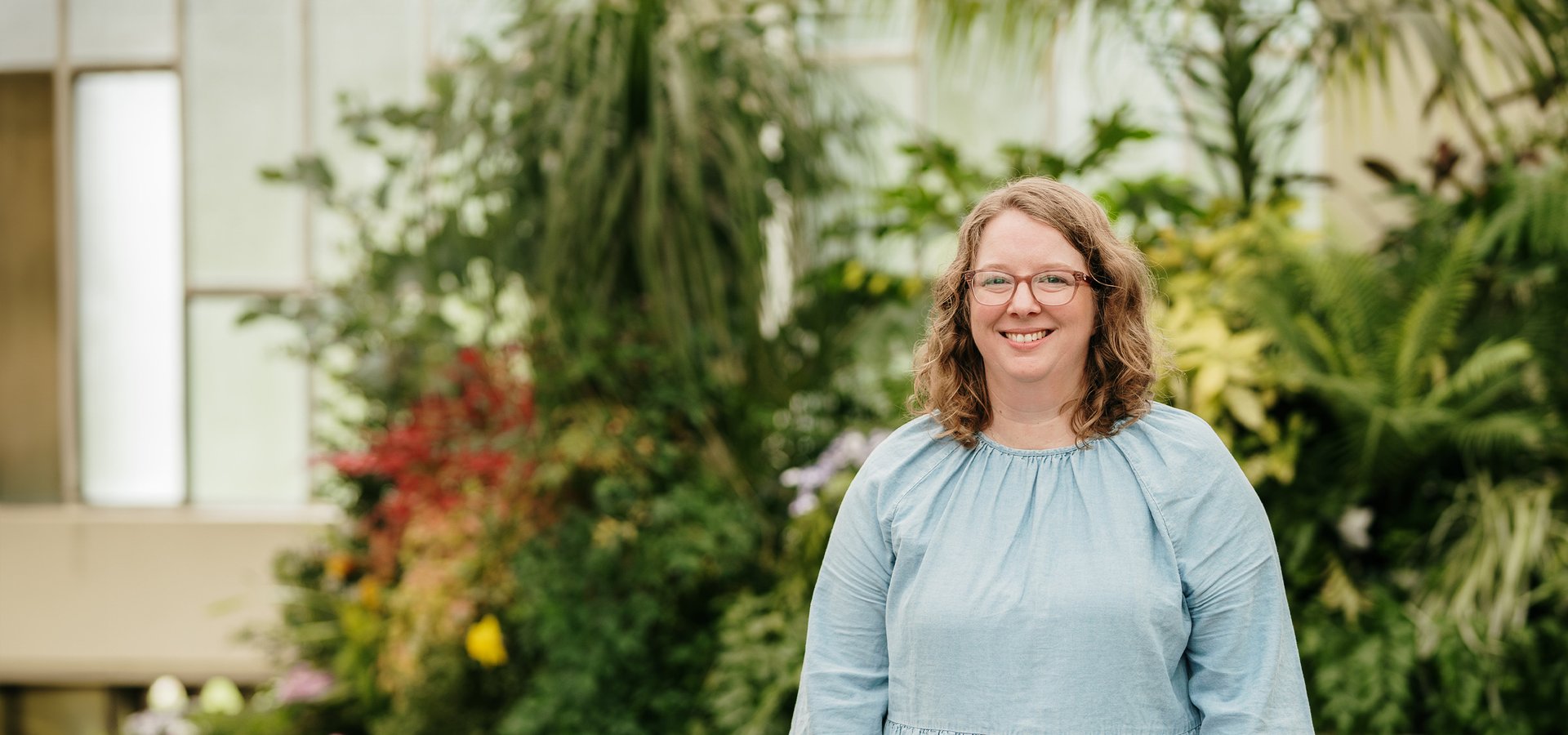
"Imagine 15 child health nurses just checking in to see how you are. I had so much support from this amazing team of women. It was lovely."
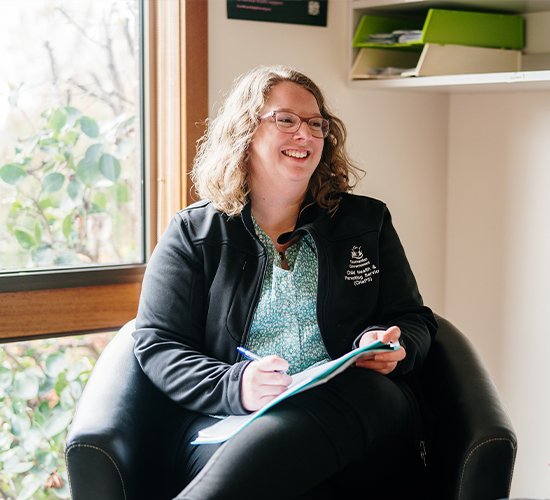
Is my baby gaining weight quickly enough? Should my infant be on a sleep schedule? Breastfeeding has been so hard; should I keep going? Why can’t I get my toddler to eat a single vegetable? Why do my kids seem to hate each other? Why does my baby cry when I pick them up? Is my child ok? Should I be worried? Am I totally failing as a parent?
Jessica Cute has heard thousands of questions just like these. As a Child and Family Health Nurse at the Child Health and Parenting Service (CHaPS), she hears them every day. “Little things can make a big difference in a child’s life,” she explains. “Sometimes a parent would come in and say, ‘My baby obviously doesn’t like me, because they cry all the time when I pick them up. They don’t cry for anyone else, but they’ll cry with me.’” Jessica talks them through normal child development, explaining how and why young children express such intense emotion. “Toddlers have meltdowns for their parents, often their mothers, more than anyone else. That’s because you’re their safe space. Helping people understand, so they can change the way they think about it, can increase that connection and bond.”
Jessica had her first experience as a nurse for young children when she was living in Western Australia, where she moved when she was 20 and fresh out of uni. She had just returned from six months on exchange in Sweden during her final year studying nursing at the University of Tasmania, an experience which gave her the confidence to move away and explore. Jessica initially worked in neurology, with stroke patients. Although the work was meaningful, it was physically and emotionally exhausting. She needed a change. So she moved to the paediatric ward. “I wasn’t sure I would enjoy it,” she recalls. “I thought it might be sad in that hospital setting, but it was lovely. There were whole floors dedicated to play; it was bright. They made it as happy as it could be, and a lot of the kids didn’t want to leave.” Jessica also made lifelong friends. “A lot of my friends had moved from the UK and didn’t have family in WA either, so we gravitated towards each other. We were each other’s family.” They remain friends even now, and Jessica goes back to visit them as much as she can, now taking her own family along.
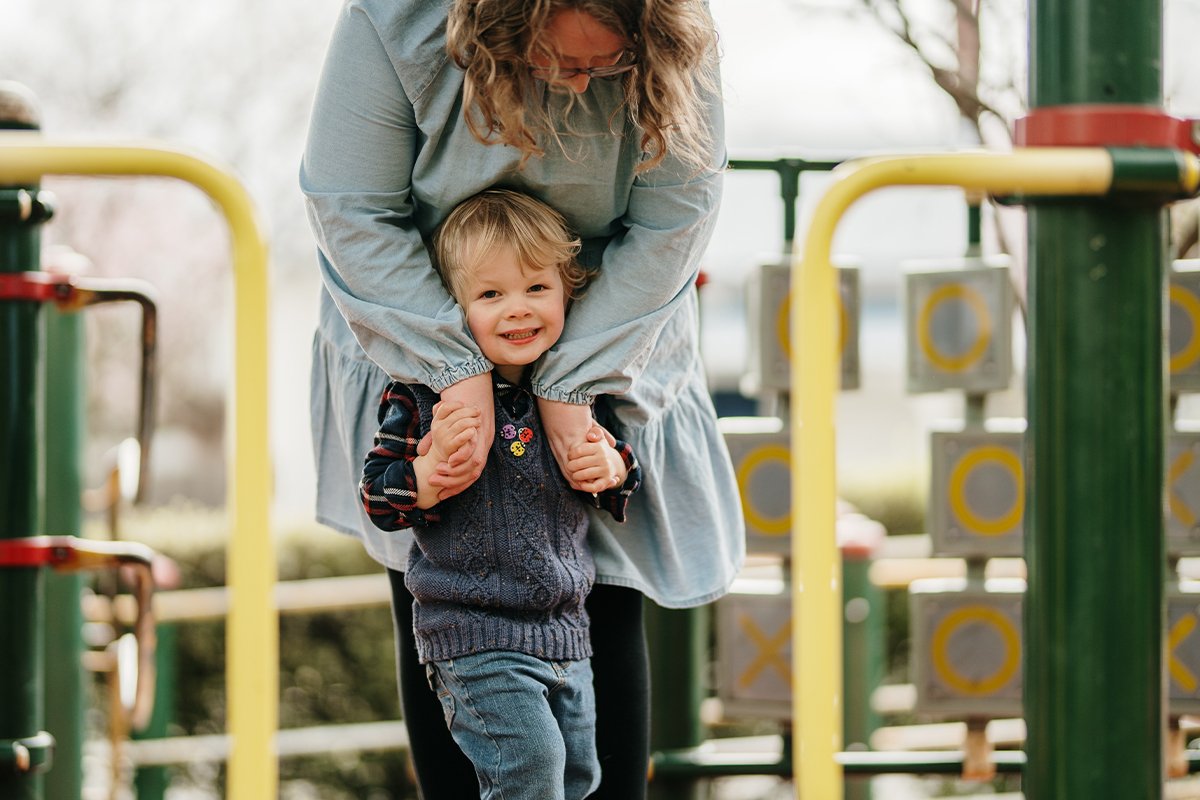
As a paediatric nurse, I didn’t know anything about the parenting side of it; I would refer people on. I tried it and loved it — love CHaPS. I was like, ‘This is what I’ve been wanting.’
When Jessica returned to Tasmania to be closer to family, she hoped to find something close to that experience. She was elated to be back living near her parents and sister, who had just had children. But she realised the hospital setting wasn’t for her anymore, and she needed to find a new way to work with families. That was when she discovered child and family health nursing. “It’s more focused on preventative care,” Jessica explains. “As a paediatric nurse, I didn’t know anything about the parenting side of it; I would refer people on. I tried it and loved it — love CHaPS. I was like, ‘This is what I’ve been wanting.’”
For Jessica, a big priority is reassuring parents that they’re doing well. If she’s in an appointment with a parent who’s feeling stressed, even small comments can make a big difference to their perspective. “If a child looks up at mum, I can highlight that and say, ‘Look how much your baby loves you; she’s looking for your gaze.’ When you’re sleep deprived and anxious, feeling all that parent guilt and doubting everything, it builds up confidence so you can believe you’re doing a good job.” It’s from those sorts of foundations that many families build close relationships with their CHaPS nurses. They work in partnership with families, focusing on their strengths and creating a plan together. If something doesn’t seem quite right, CHaPS nurses focus on sensitive and reassuring ways to share advice. “It’s a vulnerable time for parents,” Jessica explains. “No one knows what they’re doing, no one.”
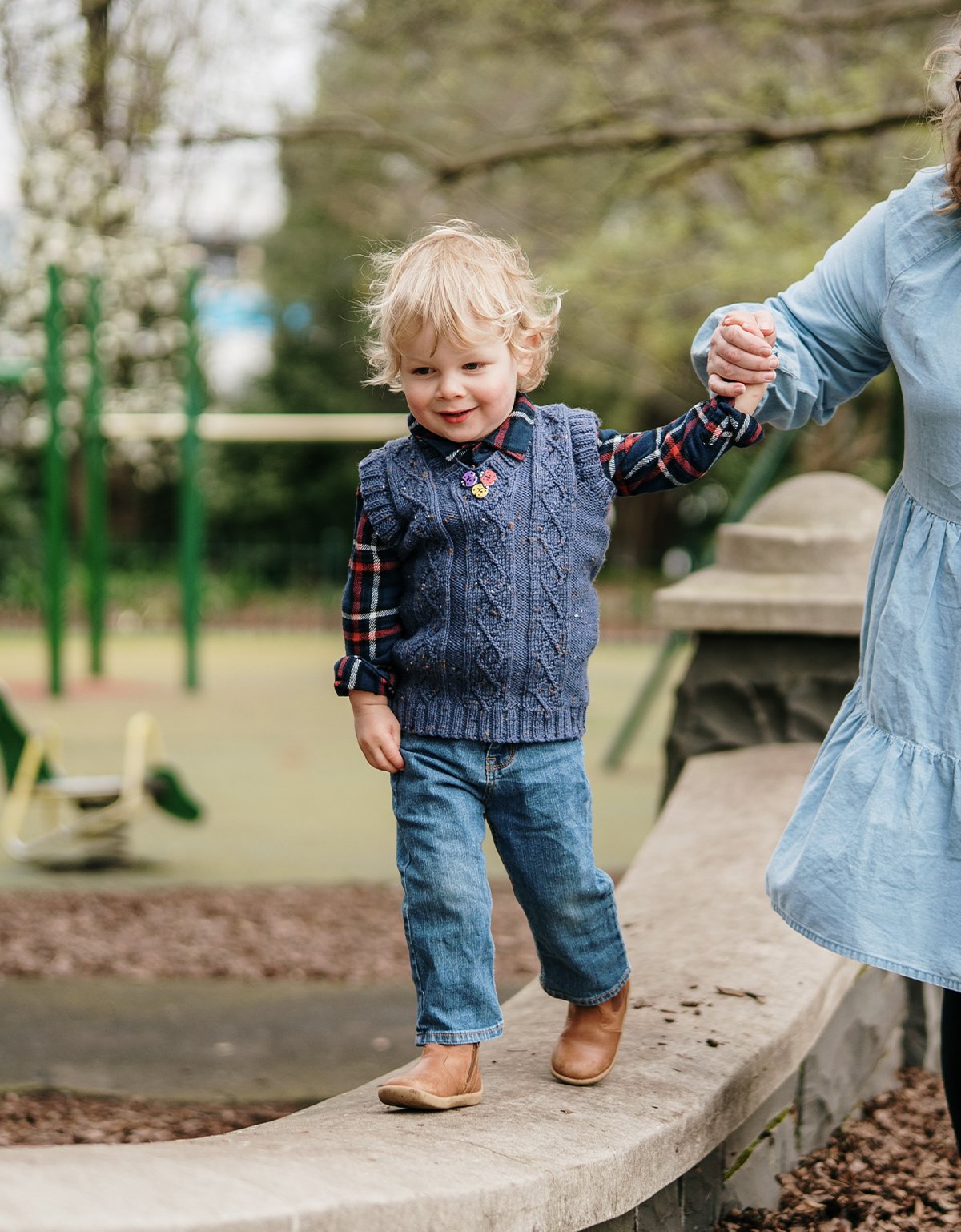
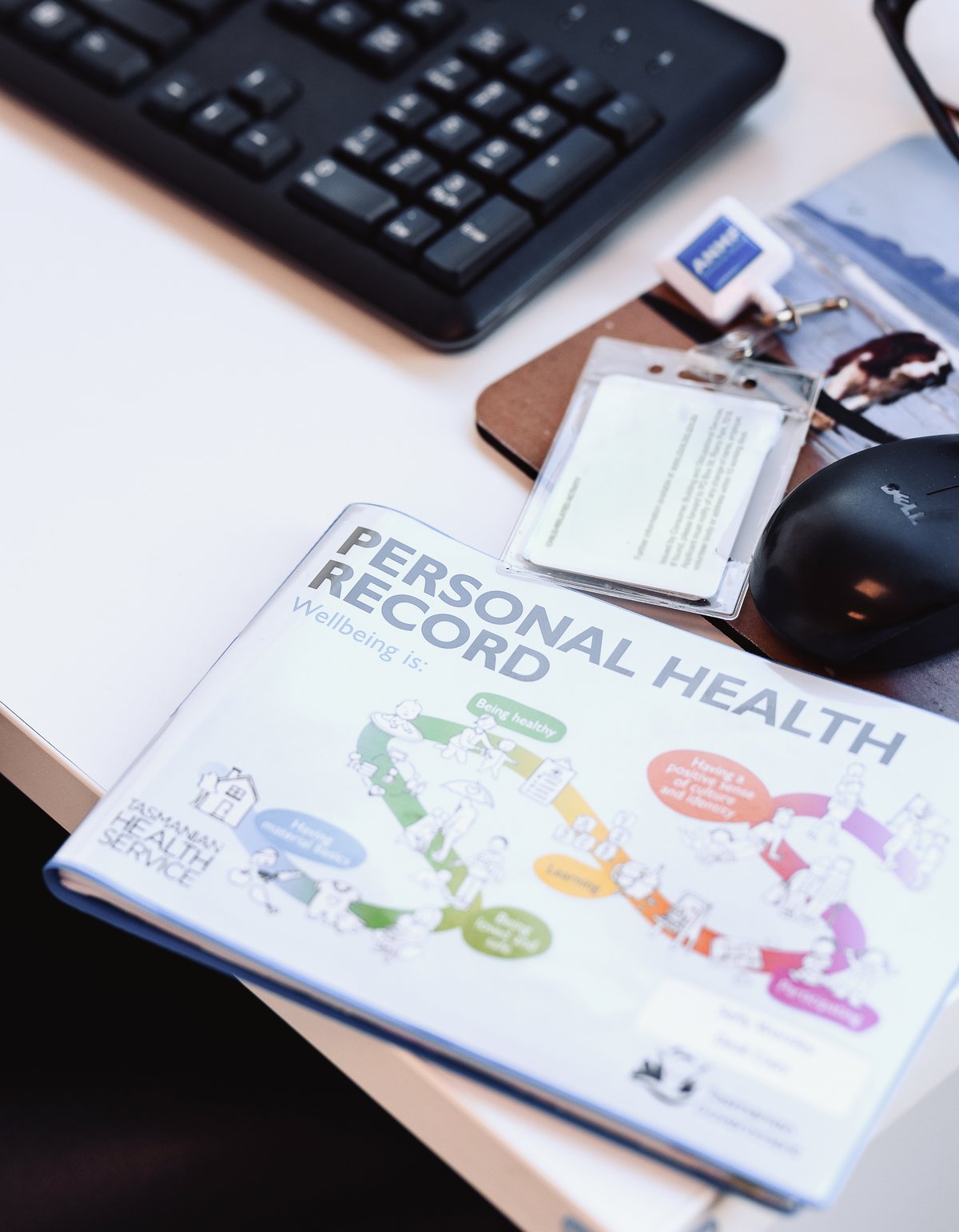
Years later, Jessica had the chance to find out for herself. “Monty is such a sweet boy. He’s lovely, and it has been a joy. It was a long journey — three and a half years of IVF, and he was our last embryo, so it was kind of meant to be.” Monty, now three years old, and his stepsister, Mia, who’s 10, adore each other. But it’s not all glory. Sleep has not been smooth with Monty, to put it mildly. Clients would come to Jessica for sleep advice, and her experience with Monty brought a whole new level of empathy to her practice. She felt like she had so much more understanding of what they were going through. “My partner and I used to laugh,” she recalls. “Because when he was a baby-baby, I’d always be like, ‘Don’t you know who I am?! I have a master’s in child and family health and you’re still not sleeping!’ He doesn’t care how much training I’ve had.”
Moving to the North of the state and becoming a Nurse Unit Manager (NUM) gave Jessica the chance to support families in an even more diverse way. CHaPS provide universal health checks, which support families up until children start kindergarten. But they also offer a range of other services and connections. As part of her NUM role, Jessica provides oversight to some CHaPS areas outside of clinics. Walker House, the CHaPS Parenting Centre for Northern Tasmania, provides help with breastfeeding, behaviour management, postnatal depression and mental health, attachment, sleep and settling, and adjustment to parenting. They provide both 1:1 and group support. Parents can have longer appointments and connect with social workers and enrolled and registered nurses. Jessica oversees the Wetaway program, for nighttime bedwetting over age 5 or 6 and the CU@Home program, which supports teenage parents through a two-year home visiting program. “I really love this team of amazing nurses and social workers,” Jessica smiles. “Their knowledge is just unbelievable. Some of them have been doing this longer than I’ve been alive, and they teach me stuff every day.” CHaPS teams have reflective practice meetings, where they talk through experiences and advice. And working with CHaPS made all the difference to Jessica as a parent of a young child. Even with all of her training, she was still shocked by how little it felt like she knew, once she was in it. “Imagine 15 child health nurses just checking in to see how you are. I had so much support from this amazing team of women. It was lovely.”
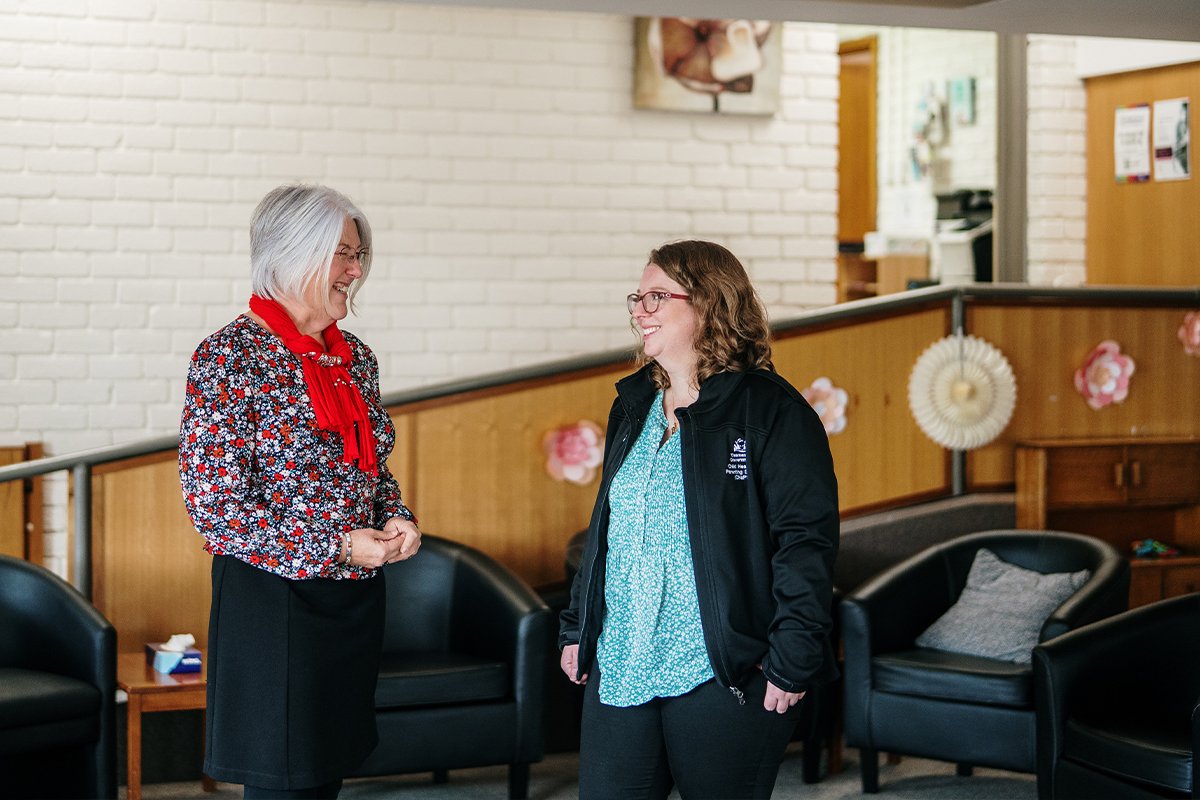
On 31 May 2023, Jessica’s daughter, Clara, was born. She had Trisomy 13, or Patau syndrome, a chromosomal abnormality that is incompatible with life. Babies with Trisomy 13 usually only live for a few hours if they survive until birth. Jessica and her partner, Tim, made the heartbreaking choice to end the pregnancy, so that in her life she would have only known love and warmth, and not the pain she would have felt had she been born at term. “The support from the hospital midwives and the OBGYN were amazing,” she says. “But it’s harder once you go home. Family and friends are the biggest support, plus a cheeky 2.5-year-old! I don’t think I have appreciated Tim more than during this time.” Jessica believes there is still a lot of stigma around pregnancy loss, that people often don’t want to talk about it or don’t know what to say to someone who has experienced it. “Maybe talking about it will help reduce that somewhat,” she says.
Jessica’s experiences as a nurse and parent have reaffirmed her belief in the importance of close relationships. Whether it’s family, friends, or a network of service providers, there are many ways for parents and carers to seek the care, advice, and support families need to flourish. “My advice would be to find your people and your village. Let them in. They want to help you through difficult times as well as be there to celebrate the good times.”
We worked with northern Tasmanian photographer Nick Hanson Visuals and southern Tasmanian photographer Inside the Frame for this Tasmanian story.